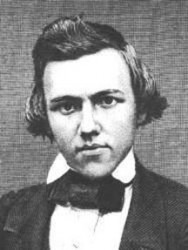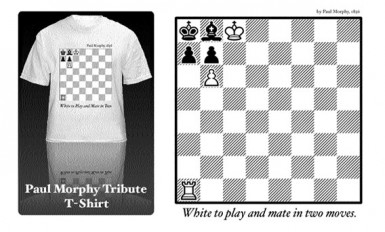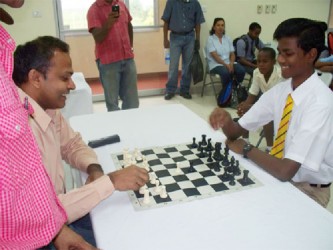Before the introduction of the internet, say in the nineteen sixties, there were about 60 chess grandmasters worldwide. From among those sixty grandmasters, one would defend the title of world champion, or alternatively, one would emerge to become champion of the world. Throughout the history of chess, humanity has been fascinated by those rare individuals whose immense skill and success at the game makes them deserving of being labelled ‘The Strongest Player on Earth.’ The title of World Chess Champion is the embodiment of this notion.
Over time, as the literature of the game began emerging, we came to realize that some world champions were stronger players than others. Even before the world championship title was recognized, there were players who could be called grandmasters; who had no equal among their peers. So when a person of the calibre of Bobby Fischer ‒ himself a world champion ‒ pronounces on the ten most outstanding chess players ever, one is compelled to listen. Fischer explained that he based his choices on the quality of games that the select few played, and which distinguished them from their opponents.
Fischer’s list referred to “The Ten Greatest Masters in History” and appeared in the first issue of Chessworld, which was published in the nineteen sixties. The list comprised Paul Morphy, Howard Staunton, Wilhelm Steinitz, Siegbert Tarrasch, Mikhail Tchigorin, Alexander Alekhine, Jose Raul Capablanca, Boris Spassky, Mikhail Tal and Samuel Reshevsky. Notable absentees are Mikhail Botvinnik and Emanuel Lasker, both world champions.
Paul Charles Morphy, 1837-84
 For many centuries , there was no formal chess championship, but there were nonetheless a select few who achieved fame for their ideas and successes over the chess board. One such person was America’s foremost chess player in the 1850s, a young man from Louisiana named Paul Morphy. They called him “The Pride and Sorrow of Chess.” Like Bobby Fischer, Morphy retired from chess in his prime. Norweigan grandmaster Magnus Carlsen has been quoted as saying: “Its easy to get obsessed with chess ‒ that’s what happened with Fischer and Paul Morphy. I don’t have that same obsession.”
For many centuries , there was no formal chess championship, but there were nonetheless a select few who achieved fame for their ideas and successes over the chess board. One such person was America’s foremost chess player in the 1850s, a young man from Louisiana named Paul Morphy. They called him “The Pride and Sorrow of Chess.” Like Bobby Fischer, Morphy retired from chess in his prime. Norweigan grandmaster Magnus Carlsen has been quoted as saying: “Its easy to get obsessed with chess ‒ that’s what happened with Fischer and Paul Morphy. I don’t have that same obsession.”
Morphy is considered to be the greatest chess master of his era and an unofficial World Chess Champion. He was a chess prodigy and was called the pride and sorrow of chess because he had a brief and brilliant career and retired while still young. Morphy travelled to Europe to face the best at the time and annihilated his competition. When he returned to America, he abandoned his chessboard and his pieces. Fischer named him as one of the greatest masters of all time. This is what he said:
“A popularly held theory about Paul Morphy is that if he returned to the chess world today and played our best contemporary players, he would come out the loser. Nothing is further from the truth. In a set match, Morphy could beat anybody alive today… he was the best read player of his time… Morphy was perhaps the most accurate player who ever lived. He had complete sight of the board and never blundered, in spite of the fact that he played quite rapidly, rarely more than five minutes to decide a move.”

The ancient pastime of chess has traditionally been viewed as one of sophistication played with Kings, Queens, Bishops, Knights and Rooks or Castles. Then there are the Pawns or ‘foot soldiers’ (the late great Bobby Fischer once said that when a pawn of his comes under attack, he becomes the pawn) which you strive to promote. The fascination with chess is endless.
I was not surprised, therefore, when I learned of Queen’s College student Cecil Cox’s excellent results at the recent 2013 CSEC examinations, where he snapped up 16 subjects with 16 grade ones and placed fifth in the country.
During the time when I taught chess at Queen’s College, one female student of mine secured extraordinarily high marks at the SAT worldwide examinations. No less than one dozen chess players with whom I am familiar became Guyana scholars. William Cox, Cecil’s father, felt that “concentration” contributed to Cecil’s academic success. Cecil was the 2009 National Junior Chess Champion, and captained the QC team in the 2011 National School’s Chess Championships which were sponsored by the Ministry of Youth, Culture and Sport. Some 175 schools in England and Wales have introduced formal teaching in chess. Chess remains an antidote to the relentless rise of video games, improves reading, mathematics, reasoning and problem solving skills.

Paulsen v Morphy
White – Paulsen , L
Black – Morphy , P 1857
1.e4 e5 2.Nf3 Nc6 3.Nc3 Nf6 4.Bb5 Bc5 5.O-O O-O 6.Nxe5 Re8 7.Nxc6 dxc6 8.Bc4 b5 9.Be2 Nxe4 10.Nxe4 Rxe4 11.Bf3 Re6 12.c3 Qd3 13.b4 Bb6 14.a4 bxa4 15.Qxa4 Bd7 16.Ra2 Rae8 17.Qa6 Qxf3 18.gxf3 Rg6+ 19.Kh1 Bh3 20.Rd1 Bg2+ 21.Kg1 Bxf3+ 22.Kf1 Bg2+ 23.Kg1h3+ 24.Kh1 Bxf2 25.Qf1 Bxf1 26.Rxf1 Re2 27.Ra1 Rh6 28.d4 Be3 White Resigns . 0-1.





